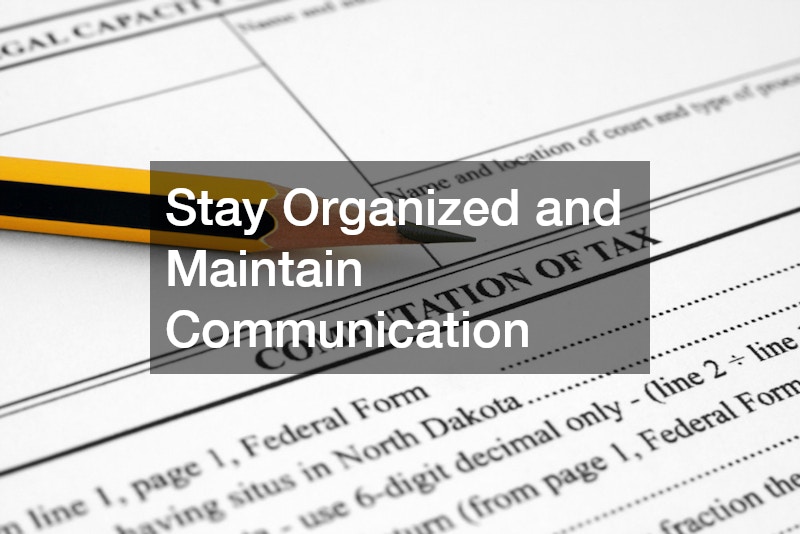
Dealing with the Internal Revenue Service (IRS) can be a stressful experience for individuals and businesses alike. Tax issues can range from minor discrepancies to significant disputes that may impact your financial stability. Understanding how to navigate these challenges and seeking proper support is crucial for resolving problems efficiently and minimizing potential complications.
Recognize the Signs of IRS Issues
The first step in addressing tax concerns is recognizing when an IRS problem exists. Common indicators include receiving notices about unpaid taxes, discrepancies in tax filings, or alerts regarding audits.
Ignoring these signs can lead to escalating issues, including penalties and interest on unpaid amounts. Staying proactive and attentive to IRS correspondence is essential for timely resolution.
Gather and Organize Documentation
Once you identify a tax issue, gathering relevant documentation is critical. This may include previous tax returns, income statements, bank records, and any correspondence received from the IRS. Keeping records organized allows for a clearer understanding of the situation and provides necessary evidence to support your case. Proper documentation is the foundation for effective IRS problem assistance.
Understand Your Options
The IRS provides several programs and avenues for resolving tax problems, and understanding these options can help you select the most appropriate course of action. For example, payment plans or installment agreements may allow individuals to manage outstanding balances over time. In other cases, taxpayers might qualify for offers in compromise, which permit settling tax debt for less than the full amount owed. Knowing which solutions are available ensures a more strategic approach to resolving your situation.
Communicate Clearly and Promptly
Effective communication with the IRS is essential when dealing with tax problems. Responding promptly to notices, providing requested documentation, and asking for clarification when needed can prevent misunderstandings and delays. Maintaining a respectful and professional tone in all correspondence helps facilitate cooperation and demonstrates your willingness to resolve the matter responsibly.
Seek Professional Guidance
Navigating IRS procedures and regulations can be complex, and professional guidance is often invaluable. Tax professionals, enrolled agents, and certified public accountants (CPAs) have experience handling various tax issues and can provide tailored IRS problem assistance. These experts can evaluate your case, recommend appropriate solutions, and even represent you during negotiations with the IRS. Having skilled professionals on your side can significantly reduce stress and improve the likelihood of a favorable outcome.
Prepare for Possible Audits
One of the more intimidating aspects of dealing with the IRS is the potential for audits. Preparing in advance by maintaining detailed financial records and understanding applicable tax laws can make the process less overwhelming. A well-prepared taxpayer can respond to audit requests efficiently and accurately, which may expedite the resolution of the issue and limit further complications.
Explore Taxpayer Rights
It’s important to be aware of your rights when dealing with tax problems. The Taxpayer Bill of Rights outlines fundamental protections, including the right to be informed, the right to privacy, and the right to appeal IRS decisions. Knowing your rights ensures you are treated fairly and helps you advocate for yourself throughout the process. Awareness of these rights is a critical component of effective IRS problem assistance.
Stay Organized and Maintain Communication
Even after initiating a resolution plan, ongoing organization and communication remain important. Keep track of payment schedules, correspondence with the IRS, and any updates related to your case. Staying organized not only simplifies the process but also reduces the risk of additional issues arising. Consistent follow-up ensures that your efforts to resolve tax matters stay on track.
Learn from the Experience
Once your tax issues are resolved, it’s beneficial to reflect on the experience and implement practices to prevent future problems. This may include timely filing of returns, accurate reporting of income and deductions, and regular review of financial records. Learning from past challenges can improve your financial management skills and minimize the likelihood of encountering similar issues with the IRS in the future.
Facing tax problems can be daunting, but understanding the process and seeking appropriate IRS problem assistance can significantly ease the burden. By recognizing the signs of tax issues, organizing documentation, exploring available options, and maintaining clear communication, individuals and businesses can navigate the complexities of the IRS efficiently. Professional guidance, knowledge of taxpayer rights, and a proactive approach to financial management further enhance the chances of a successful resolution. When handled strategically, IRS problem assistance empowers taxpayers to regain control, resolve disputes, and move forward with confidence.


